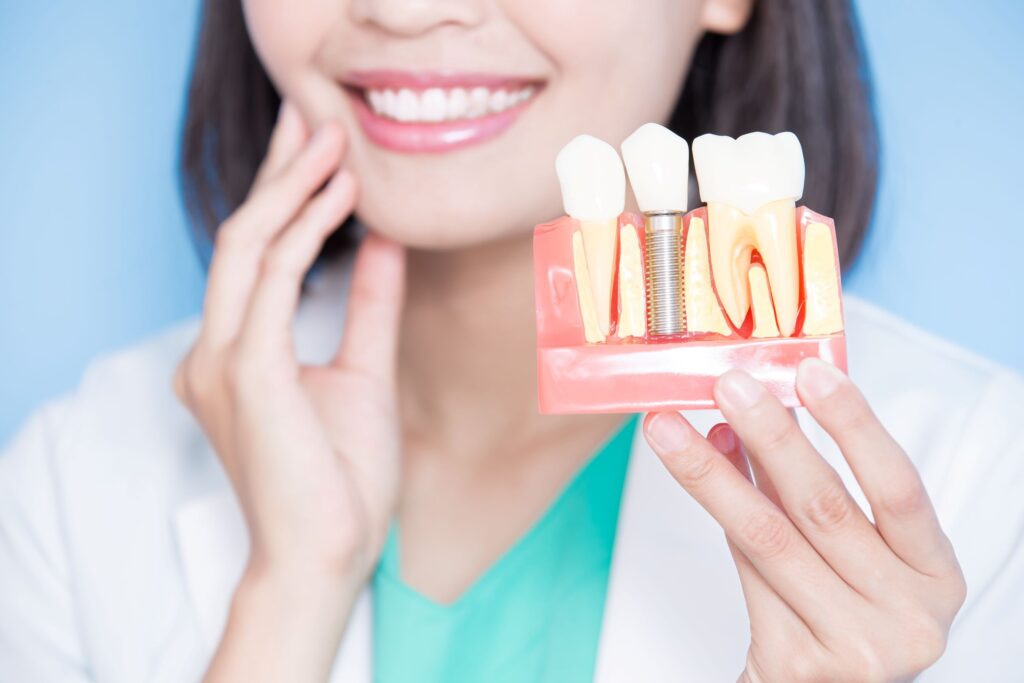
Are you considering getting dental implants to replace one or more missing adult teeth? Many experts consider these restorations the ideal way to rebuild your smile after tooth loss because of their unique placement in your jawbone. This provides additional strength over alternatives, such as dentures or dental bridges.
However, that doesn’t mean they’re invincible. There are certain routines or habits you might have that could potentially hurt your new teeth. Continue reading to learn more about 3 lifestyle changes you can make to support dental implants!
Change #1: Improve Your Oral Hygiene
Did you know that gum disease is the leading cause of tooth loss in adults? Oral issues like cavities or periodontal problems can leave your teeth so damaged or decayed that they can become destabilized or dislodged.
Unfortunately, these same concerns can also impact dental implants. Your restoration won’t develop decay itself, but the surrounding bone and gum tissues can deteriorate if they develop an infection known as peri-implantitis, which is the leading cause of failure. Brushing and flossing your teeth twice daily removes plaque and bacteria to avoid many common dental problems that can progress and harm your new tooth if left unaddressed.
Change #2: Boost Your Vitamin D Levels
Dental implants typically contain a titanium rod that’s surgically embedded in your jaw to function like a root, stimulating new bone growth with each bite down. It can take three to six months to recover because that’s often how long it takes your mouth to generate enough bone to fuse with the biocompatible post in a process called osseointegration.
However, if you have a vitamin D deficiency, you’re less likely to complete this stage of recovery successfully. Vitamin D is essential in helping your body absorb key nutrients, such as calcium and phosphorus, from the food you eat to grow strong bones and enamel. Without enough of this ingredient in your system, your body might be unable to form enough new bone to fully integrate with your implant, increasing the probability of experiencing failure. You can typically increase your levels by taking a walk on a sunny day, or consuming certain fatty fish, egg yolks, or fortified products.
Change #3: Stop Smoking
Although it may be technically possible to get dental implants if you smoke, it’s typically recommended that you quit at least two weeks prior to your procedure. Then, many experts suggest waiting until osseointegration is complete before resuming this habit, but quitting permanently is the best way to preserve your new tooth.
This is because cigarettes, vapes, and other tobacco products contain nicotine, which functions as a vasoconstrictor. It limits your bloody oxygen supply and flow, which suppresses your immune system and keeps your body from sending nutrients and infection-fighting cells to your mouth to mend.
Fortunately, making a few slight adjustments to your daily habits can protect and preserve your dental implants for years to come!
About the Practice
Patients at Parker Dental & Orthodontics benefit from a team of professionals who are passionate about helping people improve their lives by enhancing their dental health. They are experienced working with patients of all ages and have decades of combined experience, so you can trust that your smile is in good hands. They offer a comprehensive menu of services from several locations to help meet all your needs. Plus, they have the advanced training and equipment required to place and restore dental implants in the office. You can request an appointment on the website or by calling one of their conveniently located offices near you!

